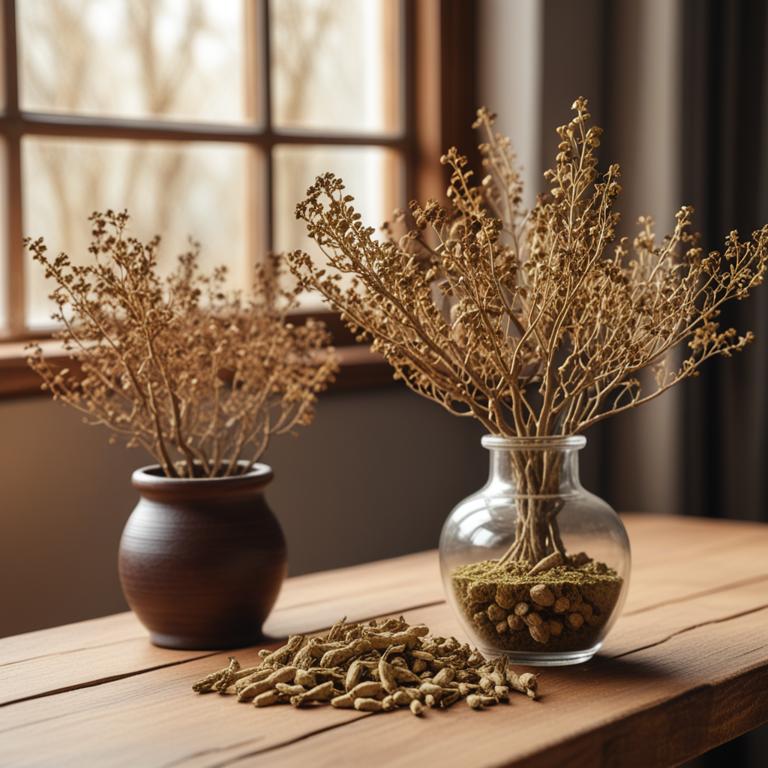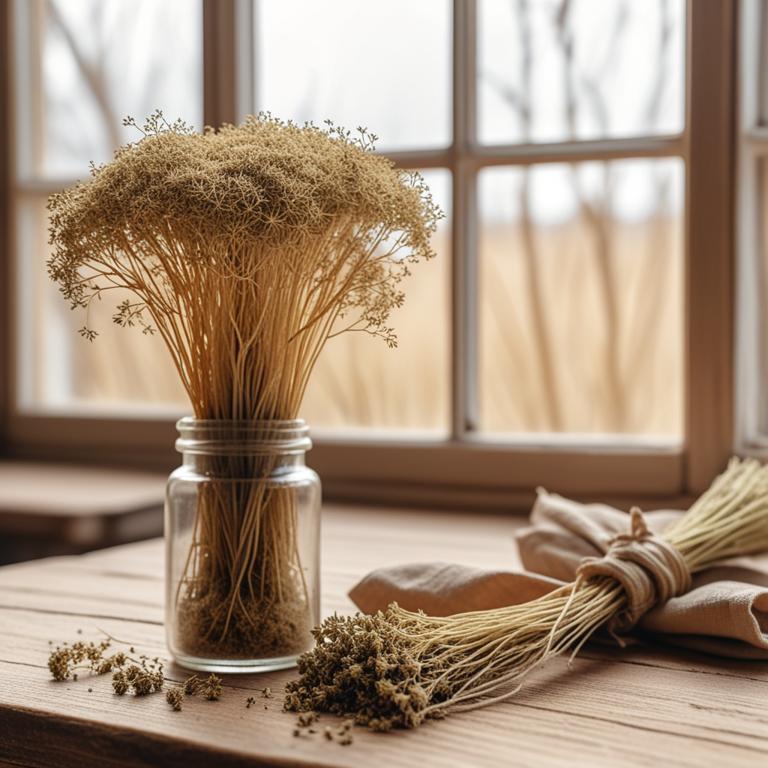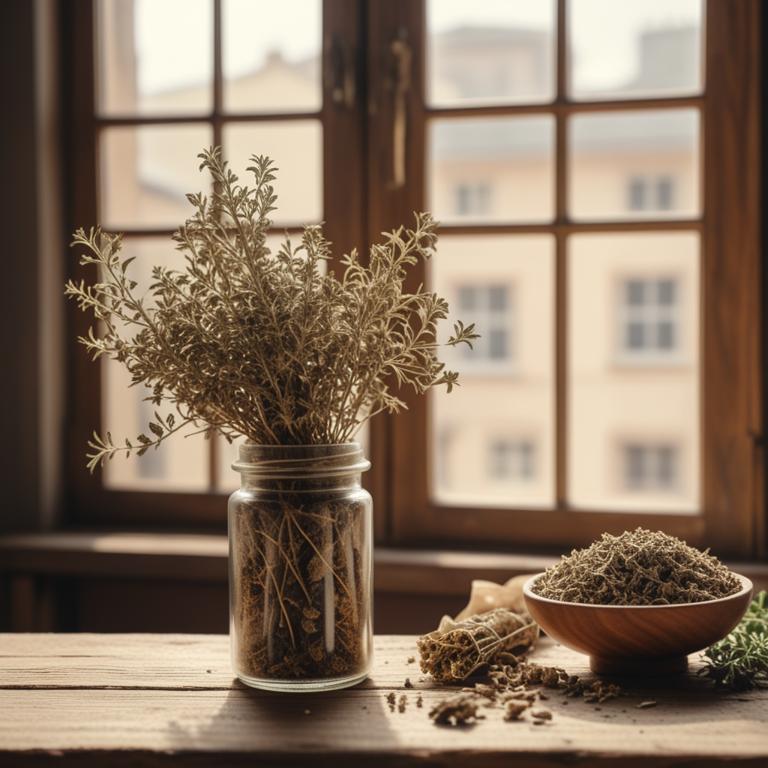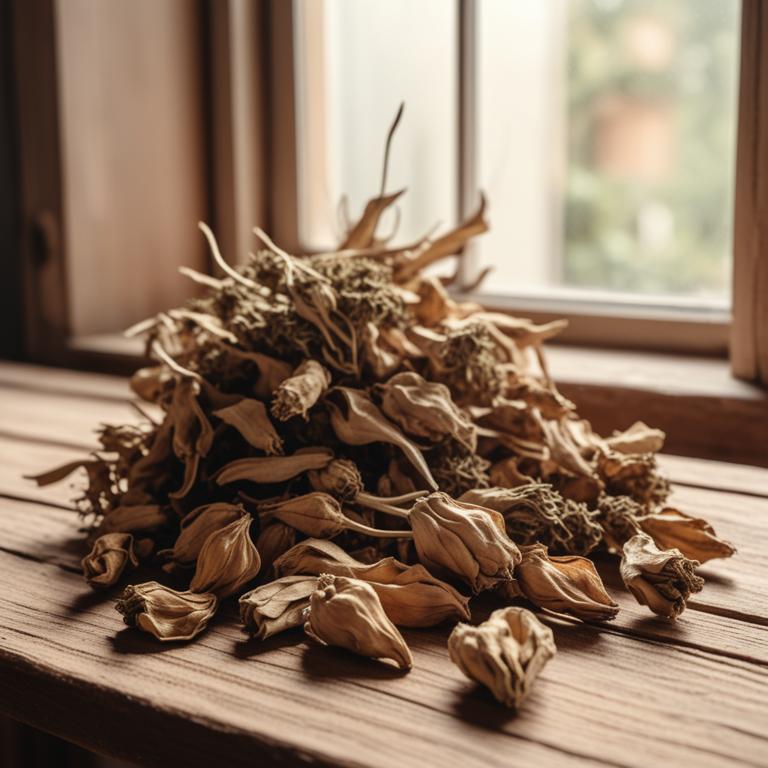Updated: Nov 30, 2024
9 Herbal Teas For Difficulty Swallowing

Herbal teas can be a helpful remedy for people experiencing difficulty swallowing.
This problem, also known as dysphagia, can be caused by conditions like Parkinson's disease, stroke, or esophageal disorders. Certain herbs in herbal teas have anti-inflammatory and soothing properties that can calm the throat and esophagus, making it easier to swallow. For instance, ginger (Zingiber officinale) has anti-inflammatory compounds that can help reduce swelling in the throat, making it easier to swallow food and liquids.
Licorice root (Glycyrrhiza glabra) has a soothing effect on the mucous membranes, which can help calm irritation and inflammation in the throat and esophagus. Ginkgo biloba is another herb that can help improve blood flow to the throat and esophagus, which can help reduce swelling and improve swallowing. Drinking these herbal teas can provide relief from difficulty swallowing, allowing people to eat and drink more comfortably. This can improve their quality of life by enabling them to enjoy their favorite foods and stay hydrated more easily.
By incorporating herbal teas into their daily routine, people with difficulty swallowing can find a natural and comforting way to manage their symptoms and regain control over their eating and drinking.
This article explains in detail what are the best herbal teas for difficulty swallowing and wh.
Also, you may be interested in...
Today Free Bonus!
The Ultimate Herb Drying Checklist
(For Long-Lasting Powerful Medicinal Effect)
How to easily dry herbs that don't mold and that keep their strong medicinal power for more than 1 year.
Table of Contents
1. Zingiber officinale

Zingiber officinale teas contains compounds like gingerols and shogaols, which have anti-inflammatory properties.
These properties help reduce swelling in the esophagus and throat, making it easier to swallow. Gingerols and shogaols also relax the muscles in the esophagus, allowing for smooth passage of food. Additionally, Zingiber officinale teas has antioxidant properties, which protect the esophagus and throat from damage caused by free radicals.
By reducing inflammation and protecting the esophagus and throat, Zingiber officinale teas can help alleviate difficulty swallowing.
- Boil 1 cup of water in a kettle or on the stove.
- Measure 1/2 teaspoon of dried Zingiber officinale root powder into a tea infuser or a small strainer.
- Pour the boiling water over the root powder in the tea infuser or strainer.
- Let the mixture steep for 5-7 minutes, then strain the tea into a cup.
- Add honey or sugar to taste, if needed, and drink the tea while warm.
Ginger Tea on Amazon
FGO Organic Ginger Tea, Eco-Conscious Tea Bags, 100 Count, Packaging May Vary (Pack of 1)
Disclaimer: We earn a commission if you click this link and make a purchase at no additional cost to you.
2. Glycyrrhiza glabra

Glycyrrhiza glabra teas contains active constituents like glycyrrhizin and saponins.
These compounds have anti-inflammatory properties that help reduce swelling in the throat, making it easier to swallow. Glycyrrhizin also has a soothing effect on the mucous membranes in the throat, which can become irritated and inflamed, leading to difficulty swallowing. The anti-inflammatory properties of saponins help calm the digestive system, allowing food to pass more smoothly through the esophagus.
By reducing inflammation and soothing irritated tissues, Glycyrrhiza glabra teas can help alleviate difficulty swallowing.
- Gather 1 cup of water, 1 teaspoon of dried Glycyrrhiza glabra root, and a tea infuser.
- Heat the water in a pot until it starts boiling.
- Add the dried root to the tea infuser and put it in the pot.
- Steep the root in the boiling water for 5-7 minutes, then remove the infuser.
- Strain the tea into a cup and drink it warm, 1-2 times a day as needed.
Licorice Tea on Amazon
FullChea - Licorice Root Tea Bag, 40 Teabags, 2g/bag - Premium Licorice Root - Non-GMO - Naturally Caffeine-free Herbal Tea - Aid in Digestion & Promote Respiratory Health
Disclaimer: We earn a commission if you click this link and make a purchase at no additional cost to you.
3. Ginkgo biloba

Ginkgo biloba teas contains flavonoids and terpenoids as its bioactive constituents.
These compounds help to improve blood circulation, which is essential for swallowing difficulties. The flavonoids in Ginkgo biloba, such as quercetin and kaempferol, have antioxidant properties that help to reduce inflammation in the throat and esophagus. The terpenoids, including ginkgolides and bilobalide, improve blood flow to the affected areas, allowing for easier swallowing.
By increasing blood flow and reducing inflammation, Ginkgo biloba teas can help to alleviate difficulty swallowing.
- Gather 1 cup of water and 1 tablespoon of dried Ginkgo biloba leaves.
- Heat the water in a pot until it's boiling.
- Add the Ginkgo biloba leaves to the boiling water and let it steep for 5-7 minutes.
- Strain the leaves from the water using a tea strainer or a piece of cheesecloth.
- Drink the Ginkgo biloba tea while it's still warm, ideally 1-2 cups per day.
Ginkgo Tea on Amazon
FullChea - Ginkgo Biloba Tea Bags, 36 Teabags - Premium Dried Ginkgo Biloba Leaves - Non-GMO - Caffeine-free - Support Memory & Focus
Disclaimer: We earn a commission if you click this link and make a purchase at no additional cost to you.
4. Rosmarinus officinalis

Rosmarinus officinalis teas contains rosmarinic acid, a compound that has anti-inflammatory properties, which can help reduce swelling in the throat and make swallowing easier.
The tea also contains carnosic acid, a potent antioxidant that can protect the mucous membranes in the throat from damage and promote healing. The rosmarinic acid in the tea can also help relax the muscles in the throat, making it easier to swallow. The anti-inflammatory and antioxidant properties of the tea can also help soothe and calm the throat, reducing irritation and discomfort.
By reducing inflammation and promoting healing, Rosmarinus officinalis teas may help alleviate difficulty swallowing.
- Gather 1 cup of boiling water and 1 tablespoon of dried Rosmarinus officinalis leaves.
- Measure out 1 teaspoon of dried Rosmarinus officinalis leaves for every 1 cup of boiling water.
- Steep the Rosmarinus officinalis leaves in the boiling water for 5-7 minutes.
- Strain the tea into a cup and discard the leaves.
- Drink 1-2 cups of the Rosmarinus officinalis tea 2-3 times a day to help with difficulty swallowing.
Rosemary Tea on Amazon
FullChea - Rosemary Tea Bags, 36 Teabags, 1.5g/bag - Premium Dried Rosemary Leaves - Cultivated From Egypt - Non-GMO - Caffeine-free - Distinct Flavor & Support Digestion
Disclaimer: We earn a commission if you click this link and make a purchase at no additional cost to you.
5. Echinacea purpurea

Echinacea purpurea teas contains bioactive constituents like alkylamides, caffeic acid, and rosmarinic acid.
These compounds have anti-inflammatory properties that help reduce swelling in the throat, making it easier to swallow. The flavonoids present in Echinacea purpurea also have antioxidant properties, which help protect the mucous membranes from damage and promote healing. Additionally, the saponins in the plant have antimicrobial properties that help combat infections that can cause difficulty swallowing.
By reducing inflammation and promoting healing, Echinacea purpurea teas may help alleviate the discomfort associated with difficulty swallowing.
- Gather 1 cup of fresh or dried Echinacea purpurea flowers.
- Measure 1 tablespoon of the flowers and place them in a heat-resistant cup.
- Boil 1 cup of water in a kettle or on the stovetop.
- Pour the boiling water over the Echinacea flowers in the cup.
- Let the mixture steep for 5-7 minutes, then strain and drink.
Purple Coneflower Tea on Amazon
Purple Coneflower Herb Echenecia Tea - Immunity Support Tea - Echinacea Tea Coneflower Tea Echinacea Herb Purple Tea Echinacea Herb Dry Echinacea Dried Herb Echinacea Leaves Purple Echinacea Tea
Disclaimer: We earn a commission if you click this link and make a purchase at no additional cost to you.
6. Lavandula angustifolia

Lavandula angustifolia teas contains bioactive constituents like linalool and linalyl acetate, which have anti-inflammatory properties.
These properties can help soothe the mucous membranes in the throat and reduce inflammation, making it easier to swallow. The antispasmodic properties of linalool and linalyl acetate may also help relax the muscles in the throat, preventing spasms that can make swallowing difficult. Additionally, the calming effects of the tea can help reduce anxiety and stress, which can contribute to difficulty swallowing.
By reducing inflammation and relaxing the muscles, Lavandula angustifolia teas can help alleviate symptoms of difficulty swallowing.
- Gather 1 cup of fresh Lavandula angustifolia flowers or 1 tablespoon of dried flowers.
- Heat 1 cup of water in a saucepan until it boils.
- Remove the water from heat and add the Lavandula angustifolia flowers.
- Steep for 5-7 minutes, then strain the liquid.
- Drink the tea while warm, up to 3 times a day, to help ease difficulty swallowing.
Lavender Tea on Amazon
120 Lavender Flower Tea Bags, 100% Natural & Pure from Lavender Flowers. Loose Flower Lavender Herbal Tea. Lavender Flower Tea. No Sugar, No Caffeine, No Gluten, Vegan.
Disclaimer: We earn a commission if you click this link and make a purchase at no additional cost to you.
7. Mentha x piperita

Mentha x piperita teas contains bioactive compounds like menthol, menthone, and limonene.
These compounds have anti-inflammatory properties that help reduce swelling in the esophagus, making it easier to swallow. Mentha x piperita teas also contains antioxidants that fight free radicals and promote healing in the mucous membranes, soothing irritation and discomfort. The antispasmodic properties of menthol and menthone help relax the muscles in the throat and esophagus, allowing for smoother swallowing.
By reducing inflammation and promoting relaxation, Mentha x piperita teas can help alleviate difficulty swallowing.
- Gather 1 cup of fresh peppermint leaves or 1 teaspoon of dried peppermint leaves.
- Boil 1 cup of water and let it cool for 1 minute.
- Add 1 teaspoon of honey (optional) to the boiling water.
- Add the fresh or dried peppermint leaves to the water and let it steep for 5-7 minutes.
- Strain the tea and serve it warm to help with difficulty swallowing.
8. Sambucus nigra

Sambucus nigra teas contains bioactive constituents like saponins, flavonoids, and polyphenols.
These compounds help relax the muscles in the throat and esophagus, reducing spasms and making it easier to swallow. The flavonoids in Sambucus nigra teas, particularly quercetin and kaempferol, have anti-inflammatory properties that can help soothe and calm irritated tissues in the throat. The saponins in Sambucus nigra teas also have a calming effect on the muscles in the digestive system, which can help improve swallowing.
By relaxing and soothing the throat and esophagus, Sambucus nigra teas can help make swallowing easier and more comfortable.
- Gather 1 cup of dried Sambucus nigra flowers and 1 cup of boiling water.
- Steep the dried Sambucus nigra flowers in the boiling water for 5-7 minutes.
- Strain the mixture into a cup using a fine-mesh sieve or cheesecloth.
- Add 1 tablespoon of honey to the tea, if desired, to make it sweeter.
- Drink the tea 2-3 times a day, 30 minutes before meals, to help with difficulty swallowing.
9. Melissa officinalis

Melissa officinalis teas contains rosmarinic acid, apigenin, and luteolin as its bioactive constituents.
These compounds have anti-inflammatory and antioxidant properties, which help soothe the throat and reduce inflammation that can cause difficulty swallowing. The antispasmodic properties of rosmarinic acid and luteolin relax the muscles in the throat, making it easier to swallow. Apigenin also has a calming effect on the nervous system, reducing anxiety and stress that can exacerbate swallowing difficulties.
By reducing inflammation and promoting relaxation, Melissa officinalis teas can help alleviate discomfort and make swallowing easier.
- Gather 1 cup of fresh Melissa officinalis leaves or 1 teaspoon of dried leaves.
- Heat 1 cup of water in a pot until it starts boiling.
- Add the Melissa officinalis leaves to the boiling water and let it steep for 5-7 minutes.
- Strain the tea into a cup and discard the leaves.
- Drink the tea slowly and as needed to help with difficulty swallowing.
FAQ
Can drinking herbal tea prevent difficulty swallowing from forming?
Drinking herbal tea may help with difficulty swallowing, also known as dysphagia. Some herbal teas, such as slippery elm and marshmallow root, have been shown to soothe and protect the mucous membranes in the throat and esophagus, reducing inflammation and discomfort that can make swallowing hard.
Is it safe to consume herbal teas for difficulty swallowing every day?
Herbal teas can be a soothing option for difficulty swallowing.
However, consuming them daily can be a concern. Some herbal teas can interact with medications or worsen conditions like kidney problems.
It's best to choose teas that are known to be safe for long-term use, like peppermint or ginger, and drink them in moderation.
How long does it take for herbal teas to show results in difficulty swallowing?
The time it takes for herbal teas to help with difficulty swallowing varies.
Some people find relief within a few days, while others may notice improvement after a week or two.
It's best to try a tea for at least two weeks before deciding if it's working for you.
What time of day is best to drink herbal tea for difficulty swallowing?
Drinking herbal tea when you're having trouble swallowing can be helpful.
Try to have it in the morning or early afternoon, when your throat is less likely to be dry from eating and sleeping.
This can help loosen up any mucus and make swallowing easier.
Related Articles
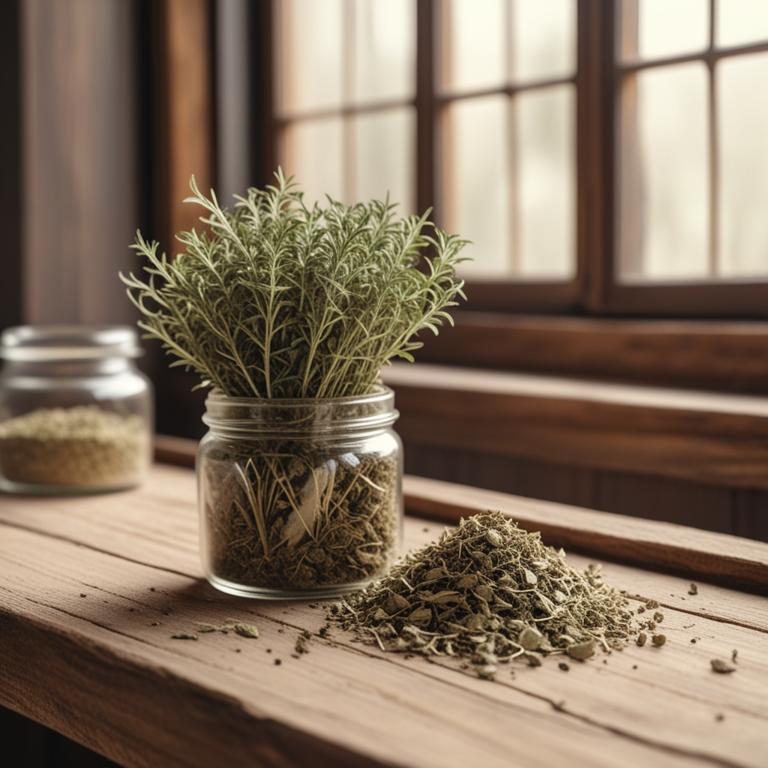
The Causes, Remedies, and Herbal Solutions for Bloating
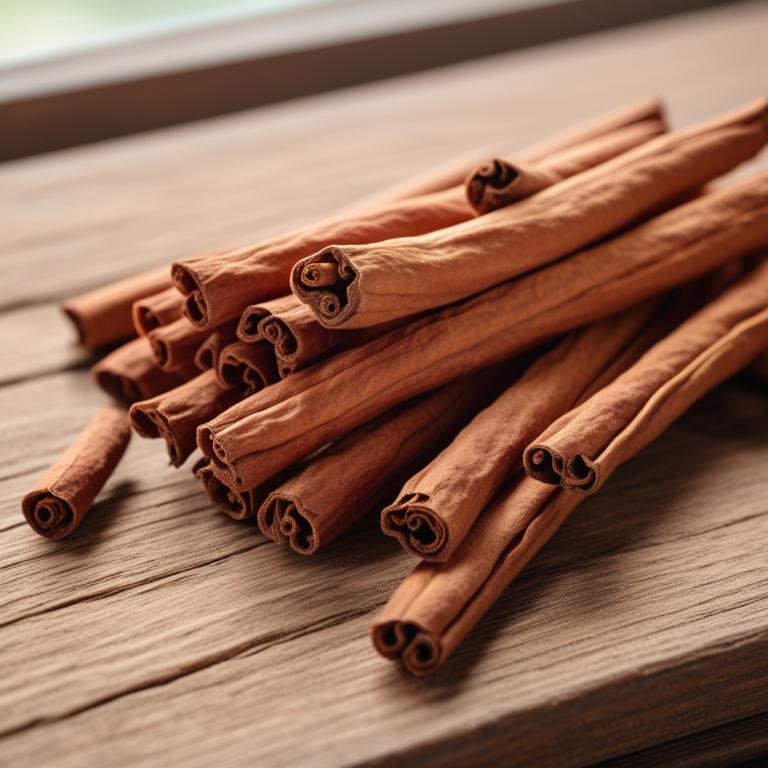
Hyperacidity and the Power of Herbal Remedies
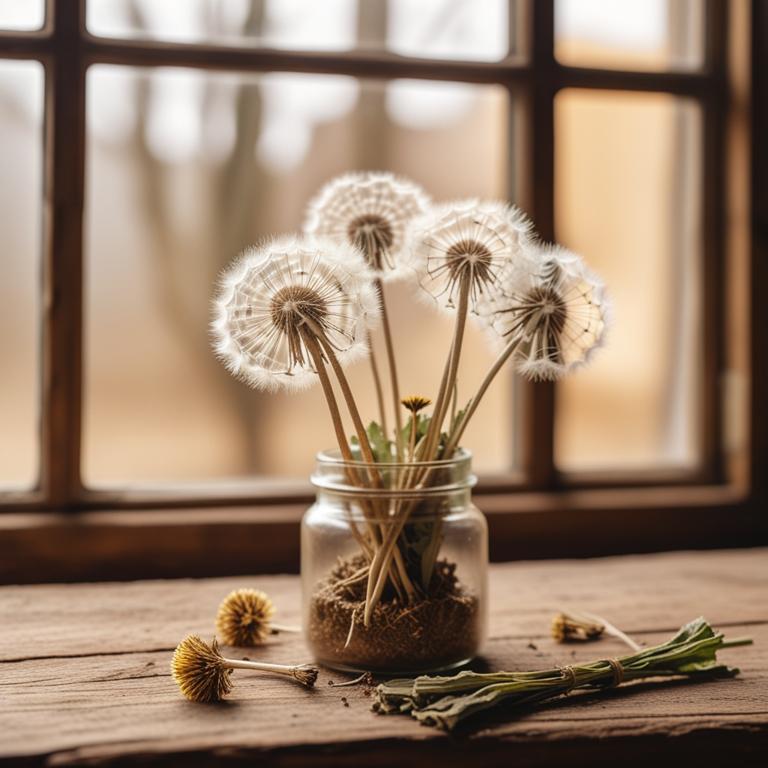
Cirrhosis Causes and Prevention with Medicinal Herbs and Herbs
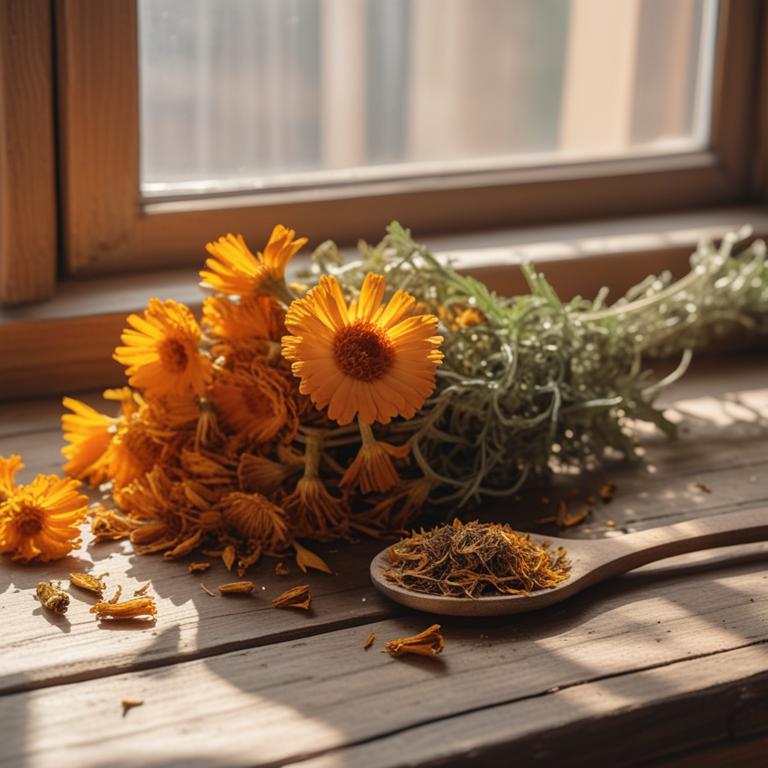
Hemorrhoids Causes, Symptoms, and Natural Herbal Preparations
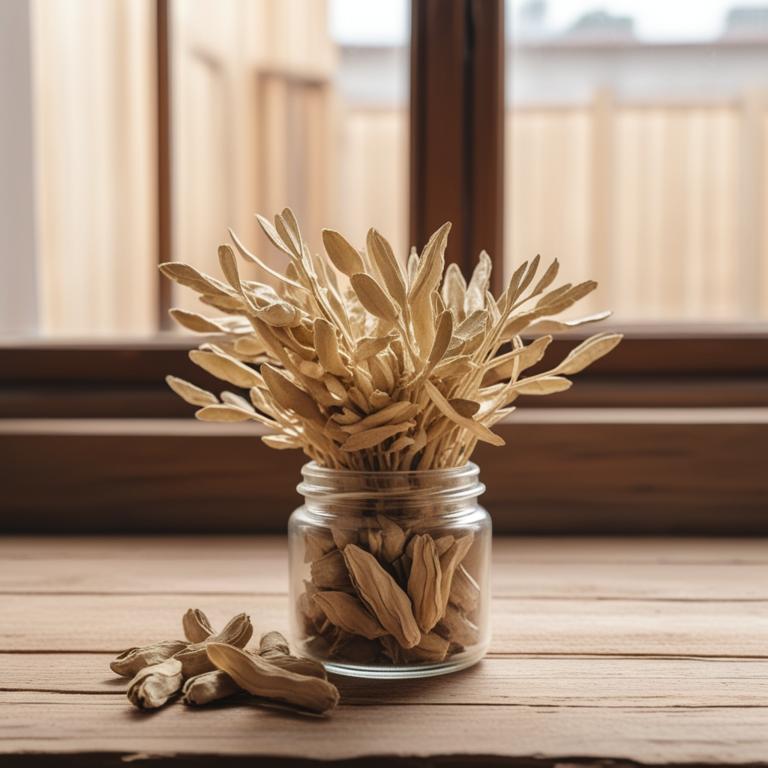
Understanding Chronic Hepatitis: Causes and Effective Herbal Remedies
